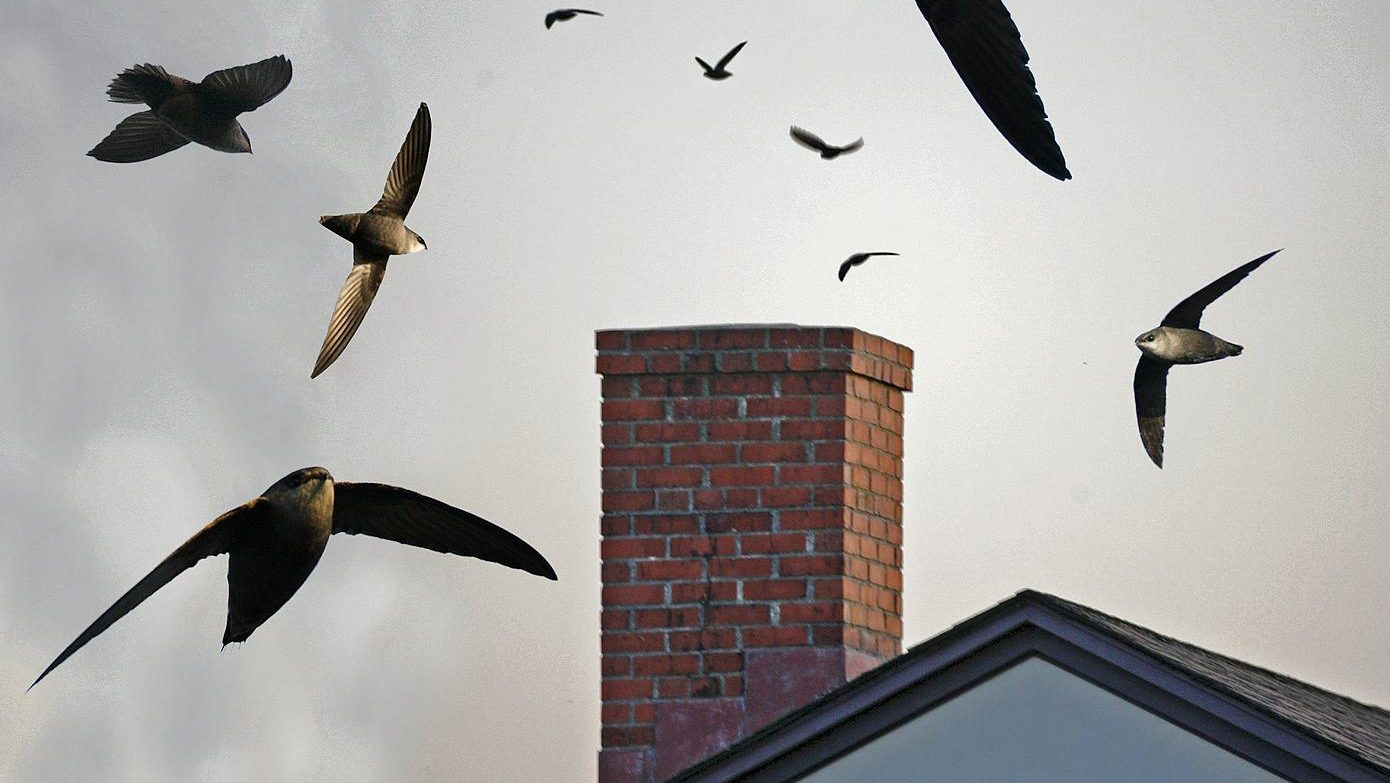Chimney Swift Initiative
Why are Chimney Swifts in trouble?

- Chimney Swifts are adapted for life on a roughened vertical service—they are physically unable to perch like an average songbird on a horizontal surface.
- Historically, they roosted in big hollow trees, but when the big trees were cut down in the early 1900’s, Chimney Swifts turned to chimneys as a substitute for trees.
- Now, as old chimneys are torn down, capped, or lined with metal, the swifts find fewer and fewer places to roost and raise their young.
- A changing climate disrupts migration routes and the birds’ ability to find food, as does widespread pesticide use.
- Nationally, Chimney Swift numbers have fallen 72% in the last 50 years. They continue to decline at a rate of 2.5% of population annually.
- Chimney swifts are classified as Near Threatened in the United States, and an Endangered Species in Canada.
What's great about Chimney Swifts?

- Chimney Swifts eat up to 1/3 of their body weight daily in insects.
- They carry no known transmissible diseases.
- When the swifts arrive in Ann Arbor in April from South America, breeding pairs find chimneys to raise their young (one nesting pair per chimney). See chimneyswifts.org for information on how to best prepare your home chimney for a nesting pair.
- It is illegal to harass, remove, or in any way disturb a nesting pair of Chimney Swifts under the Migratory Bird Treaty Act.
- In late summer and fall, the swifts gather in large roost chimneys in preparation for migration back to South America. The natural spectacle of hundreds of Chimney Swifts spiraling into a chimney is enjoyed every year by many Ann Arborites.
- The large chimney at 415 W. Washington is heavily used by Ann Arbor’s swifts. 1,400 Chimney Swifts were recently counted there (the highest population of swifts anywhere in the city)!
What is Washtenaw Bird & Nature Alliance doing to help our Chimney Swifts?

- We are partnering with landowners and other organizations in southeast Michigan to preserve chimneys to provide important nesting and roosting habitat.
- We are spreading the word that Chimney Swifts are in trouble and make great neighbors!
- Every August we organize “Swift Nights Out,” a multi-evening volunteer census of Chimney Swifts as they enter their roosts for the night. Watch our Events Calendar for this and sign up to help!